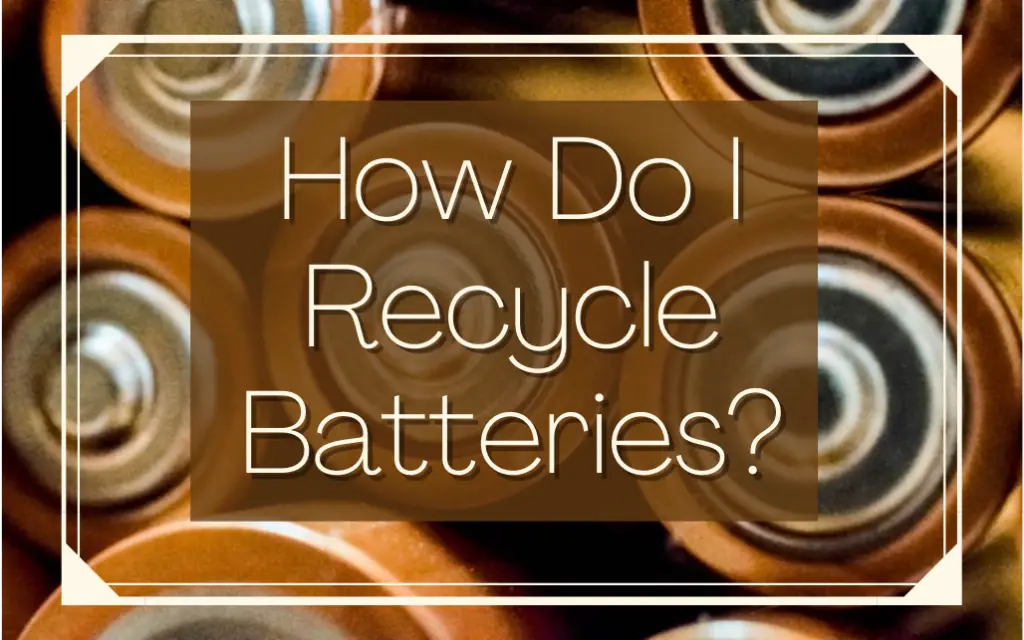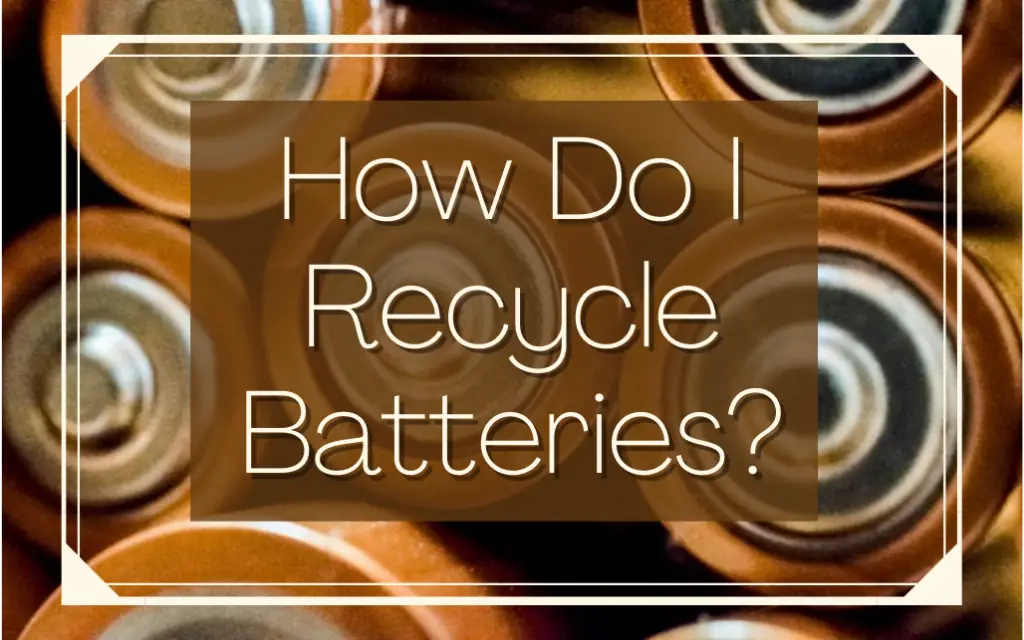How Do I Recycle Batteries?

How Do I Recycle Batteries?
Disclosure: This post contains affiliate links. That means that if you click on one of them and make a purchase, I may earn a commission. Thank you for your support!

If you’re like most people, you probably have a pile of old, dead batteries gathering dust in the basement or a junk drawer that you’re not sure what to do with. Do they go in the trash? Are they hazardous waste? Can they be recycled? If so, how do I recycle batteries?
Here’s the deal. Some batteries can be recycled, while others cannot. Basically it comes down to whether or not the battery is rechargeable. Rechargeable batteries should be recycled, and (in most locations) non-rechargeable (i.e. single-use, alkaline batteries) cannot. Below is some info on how to recycle batteries, and what to do with the ones that cannot be recycled.
How to Recycle Rechargeable Batteries
First of all, rechargeable batteries contain toxic metals such as cadmium and lead, so they should NOT be thrown in the trash. They need to be treated like toxic, hazardous waste so that they don’t end up leaching dangerous stuff into the ground and potentially our drinking water. Batteries that should be recycled and carefully disposed of include lithium batteries (like what is in your electronics), rechargeable AA batteries and rechargeable batteries in power tools.
Types of places that will take batteries for recycling include many hardware stores, office supply stores, and so on. You can check the Call2Recycle map to find the location nearest you where you can drop off your used rechargeable batteries. If you are lucky enough to be in a location where they also accept single-use batteries (like Vermont), you may be able to drop those off as well, but in most communities, single-use alkaline batteries are not accepted for recycling anywhere locally.

Recycling Tip: Many of these locations will take cell phones as well, which can be refurbished or recycled, beyond just the battery.
Store and Recycle Batteries Safely!

Batteries have the potential to start fires. Be careful with how they are stored and dropped off for recycling.
- Do not store in a metal container!
- Keep in a cool, dry place.
- Keep the terminals from touching each other. You can store each battery in a plastic bag, or tape the ends with a non-conductive tape (duct tape, electrical tape, clear packing tape, etc).
- Be sure to recycle within 6 months.
Click here for more safety tips and instructions on what to do if you have a battery that is swollen or bulging.
How to Dispose of Single-Use Batteries
Non-rechargeable, single-use, alkaline batteries such as AA, AAA, 9V or C or D cell are made of different materials than rechargeable batteries. They do not have the same recycling value for the battery manufacturers and most battery recycling programs won’t take them.
Alkaline batteries are not considered hazardous by the EPA, and in all states except California, they may be disposed of in your regular trash. (If you live in California, you will need to take them to a facility or community drop-off that accepts hazardous waste.)
If you don’t want to throw your alkaline batteries in the trash, some communities may take them as part of their other recycling drop-off programs but there may be a fee for this. You could also try Batteries + Bulbs if there is a store near you. They may also take them for a fee. (This is mainly meant to be a business-to-business service for those who use large numbers of batteries.)
If you do not have a convenient location near you that accepts batteries for recycling, there are a few services that will send you a box for gathering batteries, and then when the box is filled, you mail it back for recycling. You do have to pay for the box. The companies that offer this service include:
Do you know of any other options for recycling batteries? Let us know!





